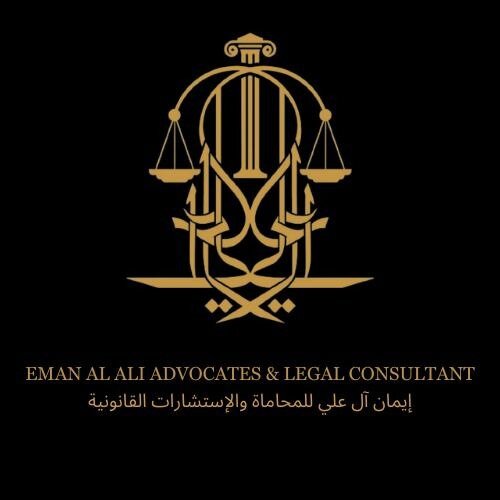Best Private Equity Lawyers in United Arab Emirates
Share your needs with us, get contacted by law firms.
Free. Takes 2 min.
Or refine your search by selecting a city:
List of the best lawyers in United Arab Emirates

Mohamed Eid Al Suwaidi Advocates & Legal Consultants
30 minutes Free ConsultationAbout Private Equity Law in United Arab Emirates
Private equity in the United Arab Emirates (UAE) refers to investments made directly into private companies or the buyout of public companies that results in their delisting from stock exchanges. The UAE has established itself as a prominent hub for private equity activities in the Middle East, owing to its investor-friendly environment, robust regulatory framework, and the presence of financial free zones such as the Dubai International Financial Centre (DIFC) and Abu Dhabi Global Market (ADGM). Private equity law encompasses the structuring, funding, acquisition, management, and exit strategies for private equity investments, ensuring compliance with both local and international standards.
Why You May Need a Lawyer
Private equity transactions in the UAE often involve complex legal and regulatory considerations. You may need a lawyer in the following situations:
- Drafting or reviewing fund formation documents and partnership agreements
- Conducting due diligence on target companies
- Navigating foreign ownership and investment restrictions
- Structuring deals to ensure tax efficiency and legal compliance
- Negotiating acquisition or exit agreements
- Advising on regulatory approvals and filings with UAE authorities
- Handling disputes or breaches of contract during investments or exits
- Ensuring compliance with anti-money laundering (AML) and know-your-customer (KYC) requirements
- Protecting intellectual property and confidentiality in transactions
- Advising on employment law issues and management incentives
A lawyer with experience in UAE private equity law can help you navigate these issues, minimize risks, and optimize investment outcomes.
Local Laws Overview
The UAE has a dual legal system comprised of local and federal legislation, as well as the independent jurisdictions of DIFC and ADGM, each with their own regulations based on English common law principles. Some key local laws relevant to private equity include:
- Companies Law: The UAE Commercial Companies Law and free zone regulations dictate requirements for structuring and operating funds and holding companies.
- Foreign Investment Law: The Foreign Direct Investment Law governs the level of foreign ownership permitted in onshore businesses, which can affect private equity structures.
- Regulations in DIFC and ADGM: Both jurisdictions have their own legal regimes for private equity funds, often providing greater flexibility and familiar investor protections.
- Securities Law: The Emirates Securities and Commodities Authority (SCA) regulates securities offerings, fundraising activities, and licensing of private equity managers.
- Anti-Money Laundering (AML): Strict AML and KYC checks apply to investment structures and transactions.
- Tax Considerations: The UAE generally offers a low-tax environment but fund structures must ensure compliance with international tax standards and avoid double taxation.
- Employment Law: Handling employee transitions and incentive schemes during private equity transactions may require compliance with the UAE Labour Law or the respective free zone employment rules.
Staying abreast of the legal and regulatory framework is critical to successful private equity investing in the UAE.
Frequently Asked Questions
What types of entities can be used to structure a private equity fund in the UAE?
Private equity funds in the UAE can be structured using limited liability companies, limited partnerships, or special purpose vehicles, often established in financial free zones like DIFC or ADGM for greater flexibility and investor protection.
Are foreign investors allowed to participate in UAE private equity?
Yes, foreign investors are permitted to participate, especially in financial free zones where 100 percent foreign ownership is allowed. Onshore investments may be subject to certain foreign ownership restrictions.
What are the main regulatory authorities for private equity in the UAE?
Regulation is primarily provided by the Securities and Commodities Authority (SCA) for onshore activities, while DIFC and ADGM have their own financial regulatory bodies for activities within their jurisdictions.
Is it necessary to obtain a license to manage a private equity fund in the UAE?
Yes, fund managers must obtain the appropriate licenses from either the SCA for onshore activities or the relevant authority in DIFC or ADGM. Managing funds without a license can result in significant penalties.
What due diligence is required before making a private equity investment?
Comprehensive legal, financial, and commercial due diligence is essential. This includes assessing corporate documents, existing liabilities, employment matters, intellectual property, contracts, and potential regulatory issues.
How are private equity exit strategies typically structured in the UAE?
Common exit strategies include trade sales, initial public offerings (IPOs), management buyouts, and secondary sales to other private equity firms or institutional investors.
Are there restrictions on raising capital from UAE investors?
Yes, fundraising activities are regulated to protect investors. Private placements are permitted, but public offerings and marketing to retail investors must comply with SCA regulations or the relevant free zone authority.
How do employment laws affect private equity transactions in the UAE?
When acquiring or restructuring a company, compliance with UAE Labour Law or the free zone’s employment regulations is required, including employee transfers, termination benefits, and incentive arrangements.
What protections are available for minority investors in UAE private equity deals?
Legal protections such as veto rights, reserved matters, tag-along and drag-along rights, and information rights can be negotiated in transaction documents, particularly within DIFC or ADGM frameworks.
How can disputes arising in private equity deals be resolved?
Disputes can be resolved through UAE courts or, more commonly, through arbitration or the courts of the relevant free zone if stipulated in the governing documents. Many prefer DIFC or ADGM courts due to their use of English law principles.
Additional Resources
The following resources and organizations can be helpful for anyone seeking additional information or legal support on private equity in the UAE:
- UAE Securities and Commodities Authority (SCA)
- Dubai International Financial Centre (DIFC) Authority
- Abu Dhabi Global Market (ADGM) Registration Authority
- Ministry of Economy, UAE
- Dubai Chamber of Commerce and Industry
- UAE Ministry of Justice
- Local law firms specializing in private equity and investment law
- International private equity associations with UAE presence
It is advisable to consult with experts or relevant authorities before entering into any legal arrangements.
Next Steps
If you are considering involvement in private equity in the UAE or require legal advice:
- Clearly define your investment goals and gather relevant information on the target company or fund
- Research the applicable laws and regulations for your intended activities and jurisdiction
- Consult with a qualified legal professional experienced in UAE private equity law to evaluate your options
- Request a preliminary review or legal opinion on your proposed investment or transaction
- Engage a lawyer to draft, negotiate, and review all required legal documents
- Work with your legal advisor to ensure compliance with regulatory and tax requirements
- Develop a clear dispute resolution strategy in case issues arise during your investment
Taking proactive legal steps before committing resources will help safeguard your interests and promote successful private equity investments in the United Arab Emirates.
Lawzana helps you find the best lawyers and law firms in United Arab Emirates through a curated and pre-screened list of qualified legal professionals. Our platform offers rankings and detailed profiles of attorneys and law firms, allowing you to compare based on practice areas, including Private Equity, experience, and client feedback.
Each profile includes a description of the firm's areas of practice, client reviews, team members and partners, year of establishment, spoken languages, office locations, contact information, social media presence, and any published articles or resources. Most firms on our platform speak English and are experienced in both local and international legal matters.
Get a quote from top-rated law firms in United Arab Emirates — quickly, securely, and without unnecessary hassle.
Disclaimer:
The information provided on this page is for general informational purposes only and does not constitute legal advice. While we strive to ensure the accuracy and relevance of the content, legal information may change over time, and interpretations of the law can vary. You should always consult with a qualified legal professional for advice specific to your situation.
We disclaim all liability for actions taken or not taken based on the content of this page. If you believe any information is incorrect or outdated, please contact us, and we will review and update it where appropriate.
Browse private equity law firms by city in United Arab Emirates
Refine your search by selecting a city.
















